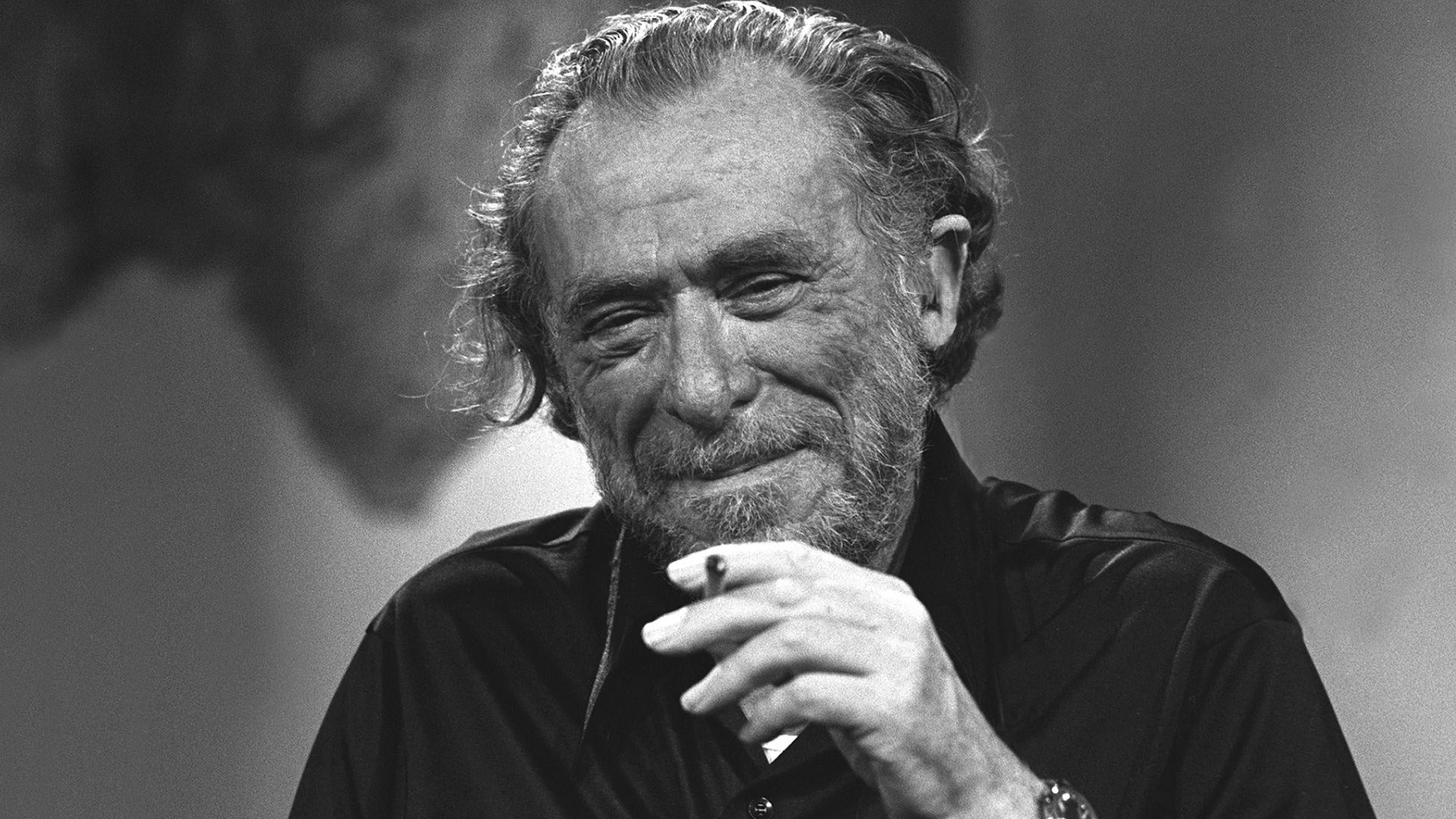The Genius Of The Crowd Comments
there is enough treachery, hatred violence absurdity in the average
human being to supply any given army on any given day
and the best at murder are those who preach against it
...
Read full text
To Mitchenko, you have missed the point entirely. Why would a devote reader tell us to be weary
Ouch! Love the 2020 comment below. Spoken word version of this is very powerfully sampled in " Genius of the Crowd" at gutbuketslim.bandcamp
You messed up one line, " those who preach peace do not have love" should read, " those who preach love do not have love"
It's a very sad indictment for this website too, after every viewing of this great anti-war, idiocy of human unconsciousness poem, to show a video promotion / enrollment of young people for the R.A.F. If anyone has any doubt about Bukowski's poem, this is proof that, as yet, people will be intentionally pitched against people by the evil powers that be. Power, Money, Domination, Fear and fear of domination, Religion, Nationalism, God, Divide and conquer. It's all in this poem, as a prophetic warning and a timeless vision too the hideous vagaries of man(kind?)
This poem is a call for us to understand the intentions behind people's actions. That is good advice.
I personally feel as though this poem was written not only as a sad testimony of the time in which it was written, but also as a warning of what such thinking will lead to. Ultimately, when we live in a society in which the majority are either ignorant of or actively trying to suppress such things as art, beauty, love, truth, and so on, we do end up with these violent clashes (sometimes, metaphorically as in the clashing of two generations, other times, not so peacefully (i.e. protests turning into violent riots.) Furthermore, I would like to address Mr. Mitchenko's critique. Personally, I feel the Bukowski left the poem purposefully vague so that its impact could easily be felt for years to come. Had he (Bukowski) specified what the issues were that caused him to feel this way - in detail, no less, the poem would have lost its timeless luster and effect. Furthermore, the poem you describe that you wish Bukowski had written, to me, would make a fine essay for that time period, but would such a direct, detailed criticism (sans the unfocused whimsy that allows it to be relevant even today) truly be comprable to the artfully grim piece before us?
this poem is like a hit in the face it's beautiful and powerful and so very true when you're surrounded by people who don't absolutely understand you and don't even want to understand you, trying to make your life miserable in order to not feel miserable themselves, when you have to permanently struggle against narrow-mindedness and bigotry, you know exactly what cb talks about thank you, Bukowski, for telling this sad truth in heart-felt poetic words let's beware the average man
It's irrelevant whether I dislike a comment or not. Rather than simply clicking the I like or I dislike button, I need to produce an intelligent, well-informed argument as to why I agree or disagree with a comment, assuming I'm a serious reader concerned about the state of poetry, and how it can be improved. If I click on the button and nothing more, I immediately disqualify myself, because of the lack of seriousness and thoughtfulness I show.
The poem is fairly good, but not nearly as good as many suppose. I do see the truth in some statements, but they're far too general. And the danger with generalizations is that they tend to be black-or-white oversimplifications; they miss out on the nuances and ambiguities in a situation. It would have been better had Bukowski restricted himself to 2 or 3 of the points made in the poem, and then actually SHOWED his points playing themselves out in a specific context or concrete setting. While general statements can please or provoke readers, they are nonetheless to be used sparingly and only once a specific situation has been presented. Had Bukowski adopted the above approach, his poem would perhaps have been more powerful. As it stands, it doesn't merit higher than a 6.5.
This poem is more potent than it ever was Such a clear eye on the human condition
Rarely some poems are so good that when I read them they feel like a smack in the face of poignant reality. This is one of those rare gems for me. A powerful and true message.
Bukowski, the most prized pupil in the study of humanity.

To Mitchenko, you have missed the point. Why would a devote reader and writer tell us to be weary of readers? Is the nuance not there or is it you who has missed the nuance?